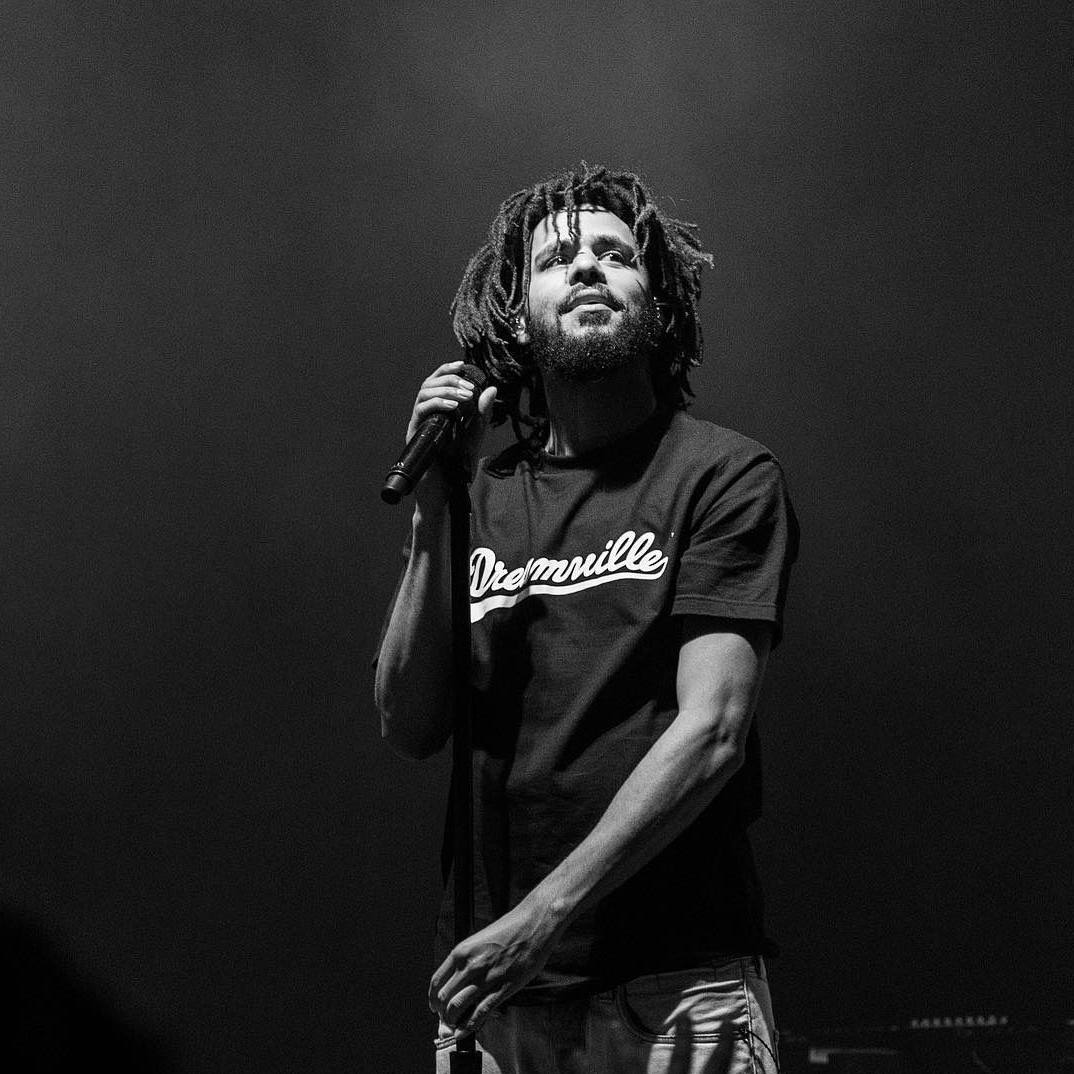In honor of the upcoming release of “The Off-Season,” J. Cole’s 6th studio album, I decided to come up with my list of my top fifteen J. Cole songs. This list includes everything from loose singles in the mixtape era to the songs from more recent studio albums. Narrowing down to only fifteen songs was difficult enough, and the list is simply in alphabetical order (rather than being listed by ranked preference). Also, this list is strictly limited to songs coming directly from a Cole album or single, so no collaboration projects (like the Revenge of the Dreamers series) are considered.
“Kenny Lofton” ft. Jeezy
Magnificent sample selection is often an essential element in a handful of Cole’s classics, an “Kenny Lofton” is certainly an example. The Manhattans’ “Hurt” is looped masterfully as Cole and Jeezy combine for three powerful verses separated by a soulful chorus from J. Cole. “Kenny Lofton,” named after the legendary Black baseball player, skillfully criticizes how the American public views Black people when they are not actively performing in entertainment or athletics. “Pac on the mic in his prime / They only care ’bout a n**** when he writing a rhyme / Kenny Lofton, you feelin’ my pace? / They only care ’bout a n**** when he stealin’ the base… / And it breaks my heart / The world’s a stage, I’ll just play my part.” In a career full of emotionally resonant tracks, “Kenny Lofton” will always remain near the very top of that list.
“No Role Modelz” has become one of the biggest hits of J. Cole’s career, and with good reason. The refreshing structure, with four verses and a handful of pre-choruses, choruses and bridges, along with the triumphant production, keep the energy of the song high throughout and make it one of the most entertaining tracks from Cole’s standout album “2014 Forest Hills Drive.” Not only just a good feel-good party song, “No Role Modelz” touches on the lack of role models in Cole’s life growing up, as well as looking at cultural issues (particularly with “LA hoes”) that he thinks are the result of a lack of positive influence.
“Power Trip” ft. Miguel
One of the best samples and production selections in modern rap, an angelic vocal feature from one of the best modern R&B singers and two remarkable verses along with a heartfelt chorus from Cole: How would this one be anything other than incredible? “Power Trip” is a timeless love song, serving as a double meaning looking at both his love for his partner as well as his love for the rap game in general. Jermaine just has the undeniable ability to personally connect with his listeners, and “Power Trip” showed that he could make chart-topping music with legitimate content and genuine quality (unlike his first breakout hit in “Work Out”). The fourth track from “Born Sinner” is undoubtedly one of the best contemporary love songs in rap.
In line with much of “Friday Night Lights,” “Premeditated Murder” sees Cole reflecting on his rise to stardom and his hunger to become one of the all time greats in rap music. Over the epic production, J. Cole establishes himself and his ambitions: “You n***** hated and I levitated further / Knew I would kill the game, premeditated murder.” The track also looks at the darker sides of fame and the effects of success on personal relationships: “But, do you love me like you used to? / Even though I ain’t that n**** that you’re used to / Remember back when I was broke? You would fix me / Do you prefer the broke me or the rich me? / The broke me couldn’t buy you meals, not even a value meal / And now I pay for everything, how you feel? / Mixed feelings ’cause now all the chicks feeling him / You gotta adapt though, I’m never going back.”
One of the most feel-good and triumphant tracks of his career, Cole once again effortlessly weaves nostalgia, comedy and braggadocio, all over beautiful production. The sample of The Class-Set’s “Julie” gives the track the uplifting, horn-heavy sample that mixes perfectly with the smooth percussion and synths. “The Autograph” sees Cole coming to terms with his status in rap, and understanding the power and influence that he has gained through his prominence in music, all while trying to keep focus on what is meaningful to him.
“It’s way darker this time.” Cole begins his sophomore album with arguably the most fitting and prolific intro track in his career. “A decade later I’d be all up in the city / Tryna get Hov to f*ck with me / With a burned CD full of jams that was up in my hand / When he said he didn’t want it it was f*ck him again / One day, he gon’ regret playing me / Little did I know in a year he’d be f*cking paying me, what could you say to me?” The profound intro portrays Cole’s hunger for success in a sonically dark atmosphere with the hard percussion, intense production and thematics relating to the devil. From a pure rapping perspective, it’s hard to find tracks of his with more captivating lyrics and more relentless deliveries.
One of the quintessential J. Cole narrative tracks, “Wet Dreamz” follows J. Cole’s youthful lust with one of the most fun and feel-good storytelling songs in not only Cole’s discography, but in contemporary rap in general. Cole’s first experience with a girl is chronicled through the vivid portrayal of every stage of the meeting and the feelings going into it. The nostalgia, the sample, the authenticity (although the story is a fictional one) and the detailed accounts all make “Wet Dreamz” one of the most enjoyable tracks of Jermaine’s career.
Honorable Mentions: “Neighbors,” “Trouble,” “Lost Ones“
